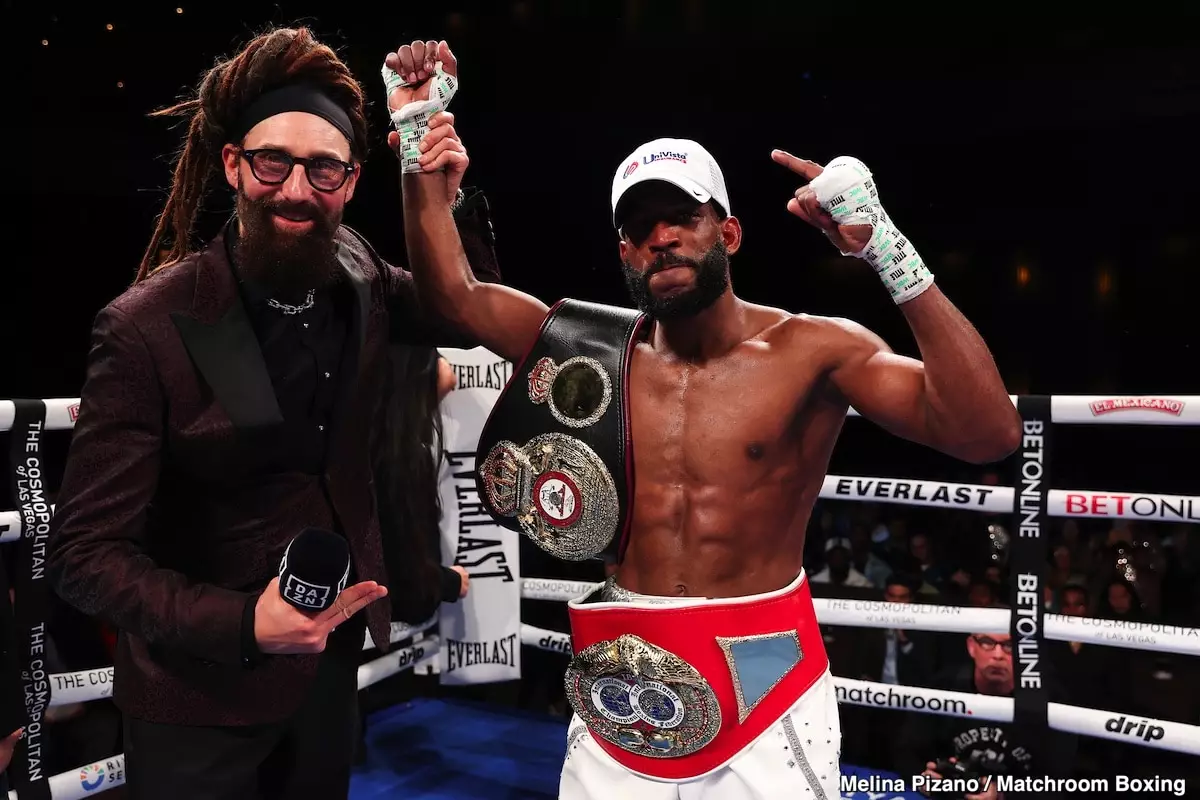In the high-stakes world of boxing, personalities often matter as much as performance, and Andy Cruz is fully aware of this interplay. The 2020 Olympic gold medalist has stepped into the spotlight not just as a fighter, but as a showman who has embraced a villain-like persona, actively taunting his potential opponents, particularly Keyshawn Davis and Abdullah Mason. With a record of 5-0 and an unwavering confidence bolstered by four decisive victories against Davis in the amateur circuit, Cruz is no longer content to sit idly by and wait for opportunities. Instead, he is calling out fighters directly, generating excitement and intrigue in a landscape often marred by hesitance and avoidance.
A Rivalry Driven by History
Cruz’s bold claims about Davis indicate a fierce desire to reclaim his dominance and challenge perceptions within the boxing community. By shouting from the rooftops that Davis is “scared” to face him, Cruz flips the narrative from one of silent wanting to audacious confrontation. His challenge isn’t just about the sport; it’s about cementing his legacy and securing his position atop the lightweight ranks. The repeated insinuation of fear speaks to a psychological warfare strategy that requires more than just skill in the ring. With Davis’ reluctance to respond, the question arises: is Davis truly intimidated, or is it a prudent strategic choice to avoid a high-risk bout against a seasoned adversary?
Promoters and the Politics of Matchmaking
Further complicating this situation is the role of promoters like Eddie Hearn, who, while managing both Cruz and the reigning WBC lightweight champion Shakur Stevenson, appears hesitant to risk a potential loss for Stevenson by matching him against Cruz. This reluctance highlights the intricate dance that promoters often play, weighing the probability of outcomes against the long-term career trajectories of their fighters. The boxing business is riddled with careful matchmaking, and Cruz’s talent may very well be an obstacle to his own progress. Hearn’s strategic avoidance of this bout raises ethical questions about the true purpose of matchmaking—is it to uplift the fighters or merely to serve economic interests?
The Road Ahead for Andy Cruz
Given the apparent avoidance tactics employed by both Davis and Mason, Cruz may find himself in a position where moving up to light welterweight could be his only viable path towards more competitive matches. At 140 pounds, he could encounter fighters who are less encumbered by fear or strategic hesitations. This move could reinvigorate his career, as he seeks fresh challenges that allow him to continually sharpen his skills and showcase his power. In calling out his rivals so vocally, Cruz not only heightens the anticipation of potential matchups but also ensures his name stays relevant in conversations about the future stars of boxing.
Andy Cruz is poised at a unique crossroads, where his actions, words, and strategic decisions will shape not just his career, but the very landscape of lightweight boxing. The time for shyness has passed; in this sport, daring to confront rivals head-on may be the most quintessential strategy for success.

